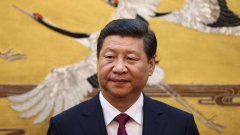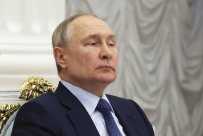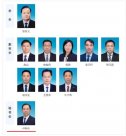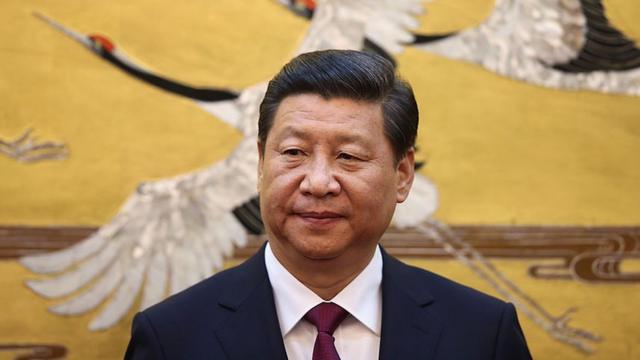
Chinese President Xi Jinping met with US President Biden on Wednesday.
Chinese official data shows that the speed of withdrawal of funds from China from China is faster than the speed of investment.
China's economic slowdown, low interest rates, and geopolitical wrestling with the United States have triggered their doubts about its economic potential.
This week, Chinese leader Xi Jinping held an important meeting with US President Joe Biden, becoming the focus of attention from all parties.
But the company that smelled the wind seemed to have begun to act with caution.
Nick Marro, chief analyst at Economist Think Tank (EIU), said: "The concerns of geopolitical risks, domestic policies uncertainty and slowing growth are prompted to consider other markets."
In the third quarter of China, China's foreign investment has set up a deficit of $ 11.8 billion (9.6 billion pounds), which is the first time since it has been recorded in 1998.
This shows that foreign companies have not invested in profit in China, but have withdraw funds from China.
China needs "correction"
Oerlikon, a Swiss industrial machinery manufacturer Oerlikon, withdrew 250 million Swiss franc ($ 277 million) from China last year.A spokesman for the company said: "China is currently facing slowing growth and requires some corrections."
"In 2022, we are one of the first companies that are expected to slow down by China's economic slowdown." The spokesman added."Therefore, we have started taking action and measures very early to reduce these impacts."
China is still an important market for Ouerang. It has nearly 2,000 employees in the country, and sales in China account for more than one -third of the company's total sales.
Ou Ruikang pointed out that the Chinese economy is still expected to achieve a growth of about 5%in the next few years, "this is one of the fastest growing countries in the world."
Since the outbreak of the new crown epidemic, companies like Ouerang have been dealing with challenges to develop business in the world's largest market.At that time, China adopted the new crown "clear zero" policy and implemented the world's most stringent epidemic prevention and control.
This has led to the interruption of many companies' supply chain, such as technology giants Apple, and most of its iPhone mobile phones are produced in China.Since then, Apple has promoted the diversification of the supply chain by transferring part of production to India.

Apple has deployed some iPhone production lines to India.
Malo believes that with the intensive situation between China and the United States, the United States has implemented new export restrictions on the raw materials and technologies required to manufacture advanced chips. This year, more companies have begun to respond to diversified calls.
"We haven't seen many companies withdrawn from China. Many large multinational companies have cultivated in the Chinese market for decades. They are unwilling to give up the market share that has been cultivated in 20, 30 or 40 years.In terms of new investment, we especially see the trend of re -evaluation.
low interest rate
Enterprises are also considering the impact of interest rates.Last year, when many countries raised interest rates in the world, China reduced interest rates against the trend.
Many major central banks including the Fed and the European Central Bank are raising interest rates to deal with inflation.Rating interest rate hikes means higher returns, and it increases the ability of banks to absorb funds, which also attracts the return of international capital.
At the same time, China's policy makers have reduced borrowing costs to support China's economy and shaking real estate industry.Since the beginning of this year, the RMB has depreciated by more than 5%against the US dollar and euro.
EUROPEAN Union Chamber of Commerce in China said that companies did not invest back to China by money in China, but spent money.
Its supplements say: "Those companies that have extra cash and income in China have increasingly transferred these funds to overseas, which is more return to their investment overseas than investing in China."
Michael Hart, president of the American Chamber of Commerce in China, pointed out that some companies withdrawing profits from China are their "long -term cycles", that is, "once its project reaches a specific scale and profitability,"Ability" will make a profit.
"The withdrawal of profits does not necessarily indicate that the company is not satisfied with China, but indicates that their investment in China is mature."
He Maike said that this is "encouraging" because "this means that companies can integrate its business in China into its global business."
Firan Technology Group, headquartered in Canada, has invested 10 million Canadian dollars (US $ 7.2 million) in China in the past ten years, but last year and 2023 removed from China in the first quarter of 2023, removeAbout 2.2 million Canadian dollars.
"We have not withdrawn from China at all. We are investing and developing business in China and investing excess cash in other parts of the world." Said Brad Bourne, president and CEO of the company.
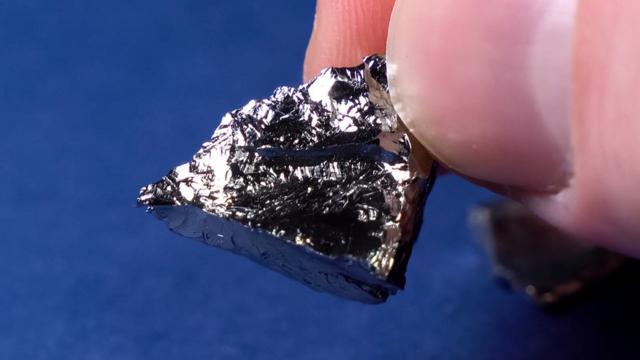
China is restricting the exit of the need for manufacturing chips.The picture shows a piece of 块.
He added: "We have surplus cash in China, and take them back to provide funds for our recent acquisitions in the United States. This is just a prudent cash management, which means that our loan is reduced."
Future uncertainty
Analysts said that there are many uncertainty in the future in terms of interest rates and Sino -US relations.
Wang Dan, chief economist of Hang Seng Bank (China), said that the Bank of China may further reduce interest rates this year to boost the Chinese economy.
The interest rate cut may put greater pressure on the weakened RMB."Due to the pressure of currency depreciation, the current space for currency is very limited," she said.
"If economic emotions improve next month, it can be said that China will cut interest rates. But if the market sentiment has not improved, the central bank will be difficult to make a decision." She said.
Malo of the economist think tank said that the business community was cautious and optimistic about the meeting between Xi Jinping and Biden.
"Direct meetings of the heads of state of the two countries often have a stable effect on bilateral relations. We also see that China and the United States have frequently conducted foreign contacts in the past few months, which makes people feel that both parties are building a channel for the relationship between the two countries.The bottom line.
"Although this is the case, the situation turns badly between the night. Unless the company and investors think they can invest more with each other, foreign investment will continue to be dragged down." He said.

